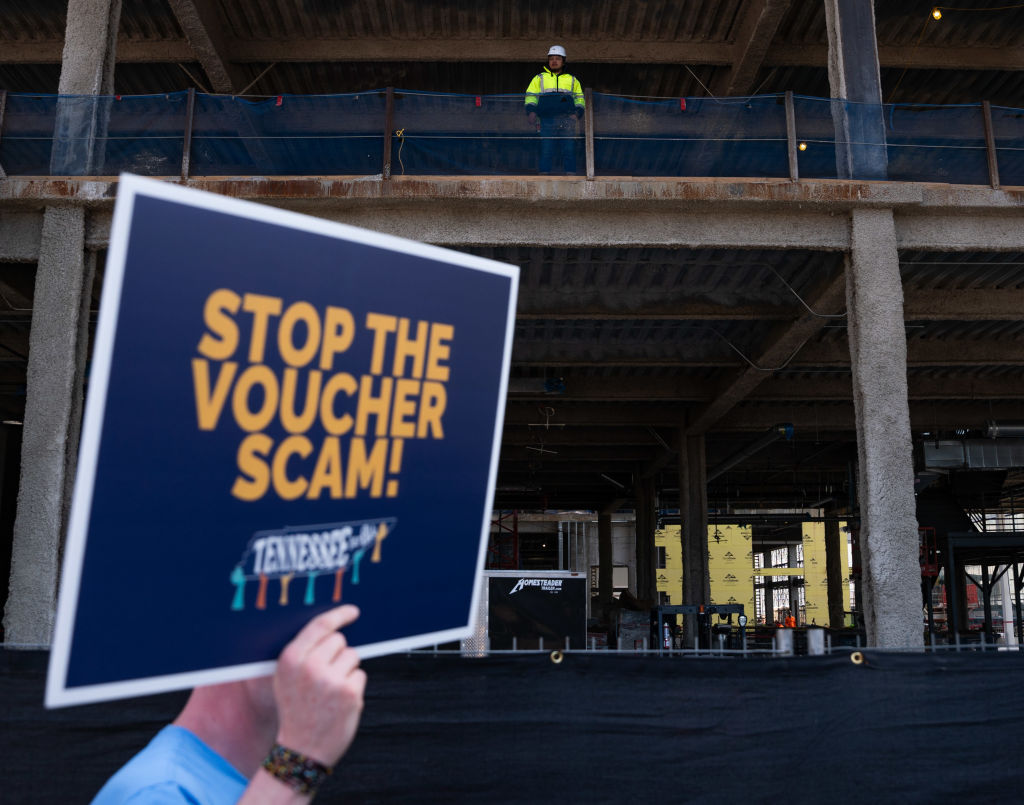UPDATED: 1:45 p.m. ET, Nov. 4 —
Underscoring the president’s refusal to accept defeat even in the face of a looming loss, Donald Trump‘s campaign said it will demand a recount in a key battleground state whose election was projected as having been won by Joe Biden. The move from the president’s campaign set up the prospects of an uncertain future for the ballots in a scenario that — especially depending on the outcome — could be perceived as a form of voter suppression.
Wisconsin will automatically recount the ballots if the winner survives by less than 0.25 percent. Candidates seeking recounts in elections with a higher margin but still less than one percent will have to pay for the recount, which carries a price tag of $3 million.
It was unclear if there would be an official recount since votes were still in the process of being counted as of early Wednesday afternoon with Biden clinging to a lead of less than one percentage point but more than 0.25 percent.
https://twitter.com/USPoliticsPoll/status/1324058499316359171?s=20
Trump’s campaign on Wednesday also filed a lawsuit in Michigan to stop votes from being counted in the election there. Michigan’s race had not been called as of Wednesday afternoon.
The latest development came hours after Trump falsely declared himself the election’s winner during an early-morning press conference following a statement from Biden calling for “patience” as vote-counting continues.
In contrast, Trump tried to sow the seeds of doubt in voters’ collective psyche to convince them without proof that he was being cheated in an election rigged by Democrats.
And while there is a debate to be had about why the contest is so tight — when Trump has in both theory and practice demonstrated he’s unfit for the job — it was impossible to discount the role that voter suppression was playing in this election.
The term “count every vote” began trending on Twitter as anticipation built to learn the election’s unadulterated results.
To be sure, there have not been any verified cases of voter suppression. However, Trump, falsely claimed cases of voter fraud and threatened to appeal to the U.S. Supreme Court — the same Supreme Court to which he successfully nominated three justices — to have it order the stoppage of votes being counted.
The president’s spiel was tantamount to him asking for federally sanctioned voter suppression, something that earned a scathing rebuke from Sherrilyn Ifill, the president and director-counsel of the NAACP Legal Defense and Educational Fund, Inc.
“This evening, as attention understandably focuses on the eventual outcome of the election, we must recognize that this election reinforces a critical truth: the American election system is broken,” Ifill said in part of a statement emailed late Tuesday night. “The noble and extraordinary commitment of Black voters to participate in democratic elections is consistently mocked by a regime of voter suppression that should shame this nation.”
Ifill very well could have been referring to instances like the North Carolina man who police arrested after he showed up to a polling place in Charlotte while armed and wearing paramilitary gear. The unidentified man was reportedly accused of voter intimidation, something that can and many times does lead to voter suppression.
She also could have been talking about the misleading political robocalls that voters in certain parts of the county have said marred much of the run-up to Election Day. The robocalls reportedly continued Tuesday in Flint, Michigan, a predominately Black city where citizens were given false information about how and when to cast their ballots, according to Michigan’s attorney general.
The fact that Black voters seemed to be disproportionately targeted by these apparent voter suppression efforts was not lost on Ifill.
“Indeed, today we once again witnessed how this country’s election system disenfranchises and burdens its citizens, especially voters of color,” she continued. “Across the country, numerous voters waited in line for hours to cast their ballots, increasing their COVID-19 exposure risk as they endured this wait alongside their fellow Americans. Others had to navigate misleading signage, polling location changes, and vehicle parking problems as they sought to vote.”
To be sure, the reports of voter suppression were far from one-sided. Multiple claims were being levied against Democrats, especially in Pennsylvania. The reports were purportedly substantiated by video evidence like these below instances in and near Philadelphia.
https://twitter.com/RaheemKassam/status/1323619425996722181?s=20
But nothing came from those reports, suggesting that nothing was done wrong. What is wrong, Ifill said, was how polling places could have had inoperable voting machines for a highly anticipated election that officials should have been prepared for. Instead, voters ran into issues like the ones seen in Georgia and Texas, where they physically could not cast ballots.
According to Hank Gibson, a Democratic candidate for Congress in Texas’ First Congressional District, “not a single vote has been cast in the two hours the polls have been open” in his district of Upshur County “because NONE of their voting machines are working.”
The same thing happened at one polling place in Ohio experiencing complete outages for “all” of its voting machines. A local journalist tweeted a photo from the First Baptist Church precinct in Bellbrook, a suburb of Dayton.
More than 64 miles away, “the Franklin County Board of Elections was not able to upload all early in-person voting data into their electronic check-in system,” according to a tweet from the office of Ohio Secretary of State Frank LaRose. “Because of this, they are shifting to paper pollbooks to check-in voters today.”
A similar situation was playing out in an entire county in Georgia.
Ohio, like Georgia, is widely regarded as an important swing state that is expected to help determine the election’s results.
Local news outlet CBS 46 reported Tuesday morning that “all voting machines are down” in Spalding County in the metro Atlanta area.
Georgia is a state that has traditionally been won by Republican candidates. It is also led by Gov. Brian Kemp, the former Georgia secretary of state who allegedly rigged his own election in 2018.
In Philadelphia, Marc Lamont Hill described his voting experience as a scene of utter confusion.
Some polling places in New York City were reported as not opening on time as lines that began forming as early as 3 a.m. continued to get longer.
https://twitter.com/AmandaPresto/status/1323605022802878468?s=20
Similar situations were reportedly also unfolding across the country.
Election Day got underway just a few short hours after Harris County — home to Houston, the state’s largest city with sizeable Black and Latino populations that reports say are united against Trump at the poll — announced late Monday the closure of nine places where voters could drive-thru and cast their ballots, leaving just one single location to do so.
https://twitter.com/zoennah/status/1323613045818535936?s=20
The Texas Tribune reported that “Nearly 127,000” voters cast their ballots in the early voting period using the drive-thrus, a relatively modest number considering Harris County’s population of more than 4.7 million. But the point was clear — someone wasn’t playing fair during what has been widely described as the most consequential presidential election in modern history.
It was in that context that Ifill concluded her statement Tuesday night by applauding voters for participating in the democratic process in the face of resistance.
“These reports are deeply alarming. They follow closely on the heels of repeated voter suppression tactics related to mail-in and curbside voting, and reports of intimidation of those casting early voting ballots in several states,” Ifill said. “Voting in an election should not be difficult. While it is unacceptable that voters had to endure these challenges, we commend their fortitude in navigating them and ensuring that their voices were heard.”
Scroll down to see more examples of voter suppression reports on Election Day 2020.























